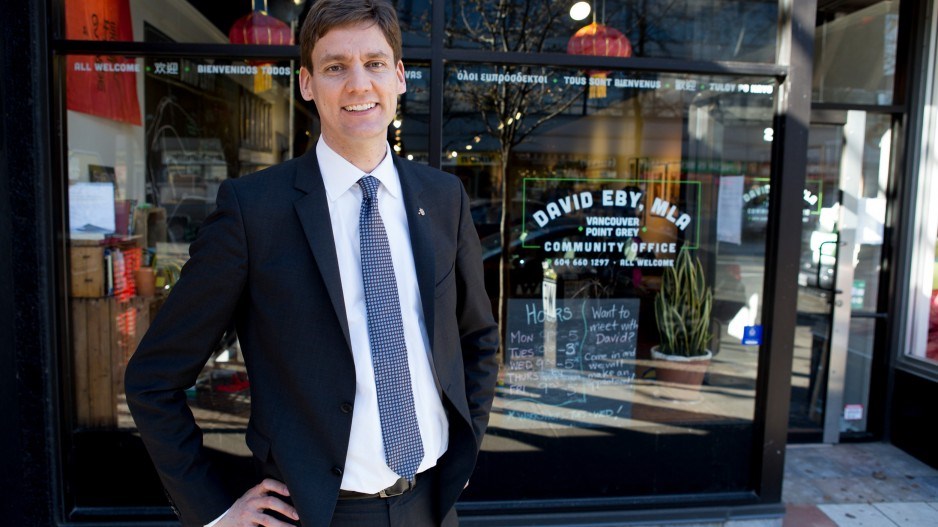British Columbians will have a choice on electoral reform this fall between keeping the current system of first-past-the-post or embracing one of three options of proportional representation presented by Attorney General David Eby this morning (May 30).
Speaking in front of reporters in Victoria, Eby detailed his cabinet report on electoral reform and outlined the two questions that will be part of the mail-in referendum taking place between October 22, 2018 and November 30, 2018.
The first question will ask whether respondents wish to keep the current voting system of first-past-the-post, or if they would like to move to a model of proportional representation, and requires a simple majority of 50% to pass.
The second question offers three choices of proportional representation for respondents to rank: dual member proportional, mixed member proportional, and rural-urban proportional representation.
The two questions:
1. Which should British Columbia use for elections to the Legislative Assembly? (Vote for only one.)
* The current First Past the Post voting system
* A proportional representation voting system
2. If British Columbia adopts a proportional representation voting system, which of the following voting systems do you prefer? (Vote for the voting systems you wish to support by ranking them in order of preference. You may choose to support one, two or all three of the systems.)
* Dual Member Proportional (DMP)
* Mixed Member Proportional (MMP)
* Rural-Urban PR
An important clarification was made by Eby that respondents will be able to rank their preference of proportional representation regardless of how they vote for the first question, and can rank any of the three options or none at all. Of course, that will only come to effect if the first question on removing first-past-the-post passes a majority.
Eby included many recommendations in his report to safeguard against criticism of both proportional representation and electoral reform in general. These include no party being eligible to receive a seat if they receive less than 5% of votes, in a response to parties with extreme/fringe views gaining unfair advantage.
If approved by cabinet, a campaign period on the referendum will start on July 1, giving two designated groups $500,000 each to reach out to the public. The attorney general also stated that his office would be removed from the process and that he will not be taking part in either side of the campaign.
An all-party team will be assembled to create a new model by March 31, 2019, should the vote against first-past-the-post succeed. As well, a second referendum is recommended after two election cycles using a new system, to ensure voters don’t want to revert the change.
The report was assembled after a six-month period of reaching out to voters and communities, including over 91,725 questionnaires submitted online regarding voters preferences on different voting systems.




